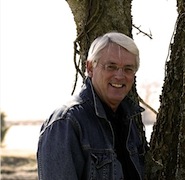
Linus said it first and said it best. Happiness is, indeed, a warm puppy, or, at least, it makes you feel really good. Kind of like happiness, I guess
I was signing some Christmas cards and thinking of the Merry Christmas and Happy New Year that we throw around so lightly at this time of year, and started to wonder what do we really mean when we say Happy New Year. Certainly we don’t mean it as an adjective modifying the noun, because it’s non-sensical to think that something inanimate, such as a new year, can be happy. Everyone knows that only people or puppies can be happy.
And I am happy. Flat out. No doubt about it. If you would have asked me, I may have had a hard time defining happiness or even why I am happy, but there you are, I am happy. Having gone this far, however, I decided to go a bit further and do my best to give you, patient readers, the wisdom of the ages as it relates to happiness.
Ambrose Bierce, one of my favorite mysterious curmudgeons, opined that happiness was an agreeable sensation arising from contemplating the misery of another. That definition of happiness rather reminds me of the best definition of true wealth that I’ve ever heard. It goes: true wealth is when you make/have one penny more than your wife’s sister’s husband.
Helen Keller said that happiness is fidelity to a worthy purpose. I suppose that anything dear old Helen says about happiness we ought to assign a lot of weight to, but it seems to me that there must be a little more meat on the bone.
The author and pop philosopher Og Mandino described happiness as a perfume you cannot pour on others without getting a few drops on yourself. I know Og best from his motivational novel The Greatest Salesman in the World. I fashioned a kind of stump speech based on his book to use when speaking to business management audiences that was really excellent…..if I do say so my self, but he does have a way of speaking in allegory that makes it a little hard for him to get to the point.
A little earlier Epicurus (3421 BCE-270 BCE), in one of his three hundred books on the subject, put forth the notion that tranquility and rationality were the cornerstones of happiness. He espoused a school of philosophy, not surprisingly named Epicurianism, on this foundation. His acolytes strived to live a self sufficient life surrounded by friends who would achieve a state characterized by peacefulness, freedom and the absence of pain. They called this happiness. Not a bad try for an old codger. Cogent but not compelling.
Enough of this looking backwards for our answers. Let’s look to those modern forces who largely shape happiness for our society….the American corporation. I now cite General Mills, well, not actually General Mills but one of their more successful brands…Special K. Bear with me here. These servants of the public interest conducted a poll, scientifically accurate I’m sure, which concluded that the happiest of all women (I’m a little put out here with this obvious gender discrimination) were those who wore size fourteen dresses. This conclusion is so loaded with possible danger to any male who would say anything at all about it, I had to turn to one who cares not one whit about political correctness or the lack thereof….Dave Barry. Dave said, and I quote, “obviously they did not survey these women while they were trying on swimming suits”. He went on to pose what seems to me to be a perfect solution to the problem that these data present. He suggested that all women’s dresses should be relabeled so that all of them are size six, which I am told is the size to which all women aspire. Enough frivolity about this serious subject.
Two other notions regarding happiness are important to this discussion. The first is Abraham Mazlow’s Theory of the Hierarchy of Needs. His theory appeals to me because he first espoused it in 1943, the year of my birth, which gives me a special spacial relationship to it and, but importantly, because it’s sensible to me that life is played out along a continuum of attainment ranging from the basic physical needs to the ones of more emotional and intellectual content. I believe that the further one is able to navigate along this continuum, the more likely it is that personal happiness, of some degree, will be achieved. The second, and equally compelling notion is one most frequently and effectively proffered by my old friend Roger Alsabrook. I will call this theory the Alsabrook Corollary to Mazlow’s Hierarchy of Needs. It simple yet elegant, and it goes like this. “If mamma ain’t happy, ain’t no one gonna be happy”. All of you married men out there know exactly whereof I speak. Right?
On a far more serious and personal note, I have thought about what makes me happy, and I’ve yet again turned to those far smarter than I to express my feelings. Albert Camus said, “what is happiness except the simple harmony between a man and the life he leads”. Wow, I like that a lot. It almost says all there is to say on the subject yet even he doesn’t discuss how to achieve that harmony. For that I turn to someone you probably don’t know, but should, Robert Ingersoll (1833-1899). He was the son of an abolitionist leaning Presbyterian preacher who became an agnostic and free thinker and adopted humanism as he became the greatest orator of his age. He was an attorney, politician, writer, philosopher, and orator who held social views substantially at odds with almost the whole of the American citizenship. His words on happiness have resonated with me and suggested a personal behavioral path for us all. “Happiness is the only good,” he said. “The time to be happy is now. The way to be happy is to make others so.” I repeat, the way to be happy is to make others so. There it is. Stripped down to the essential element.
Not a bad proscription for us all.
But we should also remember the words of that greatest of all Jewish philosophers, Henny Youngman. He warned us all with the rhetorical question, “what’s the use of happiness if it can’t buy us money?”
Happy New Year.


